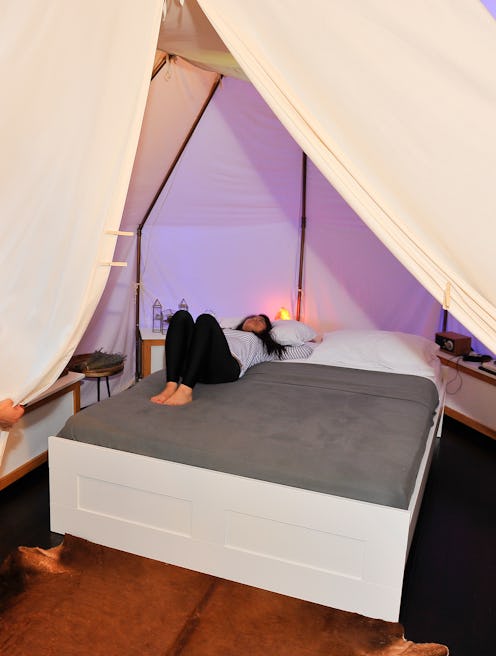
I'm tired, you're tired, everybody is tired. How much would you pay to get a good night's sleep? According to a new study, the average American would spend almost $300 a day for a perfect night of sleep. The study, based on a survey conducted by OnePoll on behalf of Mattress Firm, found that the average person in the U.S. gets less than the recommended minimum of seven hours of sleep per night. What's more, respondents reported sleeping terribly at least 99 nights a year.
In fact, people are so tired that they're willing to pay, in theory, more money for a good night's sleep than the average person's annual salary. There's a reason sleep deprivation is a form of torture. Studies have shown that it can impact your ability to learn, increase anxiety and depression, and even affect your cognitive skills to the point that you're operating at the same level as a drunk person when you don't get enough sleep.
Sleep is so valuable that a study published in the journal Sleep found that getting a good night's sleep every night is equivalent in satisfaction to winning a $150,000 jackpot. What's more, Modern Health Talk noted that not getting proper sleep can, over time, cost you up to $300,000 in unnecessary medical expenses.
"Poor sleep, studies show, contributes to decreased energy and work and athletic performance, as well as memory lapses, anxiety, irritability, depression, stress, mood swings, weight gain, marital strife, and a host of health problems," Modern Health Talk founding editor Wayne Caswell wrote. "These factors have a significant impact on your lifetime earning capacity and health care costs, and they can shorten your lifespan." He added that the lifetime cost of poor sleep easily exceeds $150,000 in accumulated net worth.
Even if you're getting the recommended nine hours of sleep each night, if that sleep is poor quality, you're still operating at a deficit. A study published in the journal Sleep Health explored how good sleep quality is defined. If you fall asleep in 30 minutes or less after going to bed, spend 85 percent of your total time in bed sleeping versus tossing and turning, and are able to fall back asleep within 20 minutes upon waking in the middle of the night, your sleep quality is considered good.
On the other hand, if it takes you more than an hour to drift off to dreamland, you wake up multiple times during the night and are unable to fall back asleep for 41 minutes or more, and you spend less than 74 percent of your time in bed asleep, your sleep quality could use some improvement.
If you're a poor sleeper you likely already know this, and you might be one of those people willing to part with $290 a night to get some shut eye. With 35 percent of people in the U.S. basically sleepwalking through life, figuring out how to get not only more sleep, but more restful sleep, is likely at the top of a lot of people's 2019 goals list. It's definitely on mine.